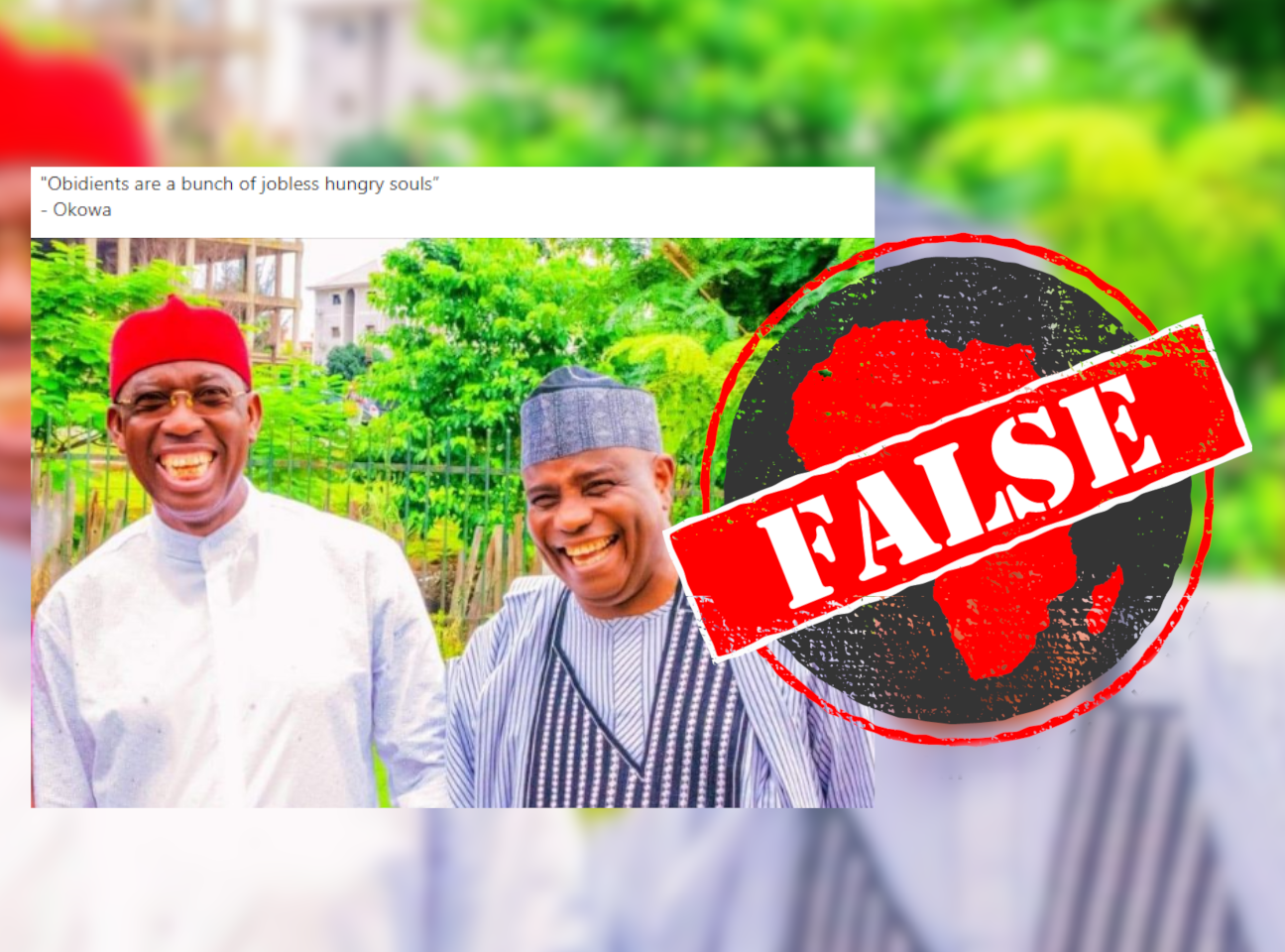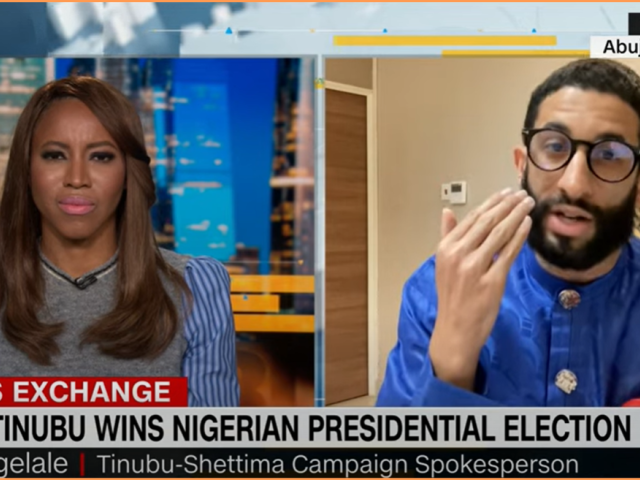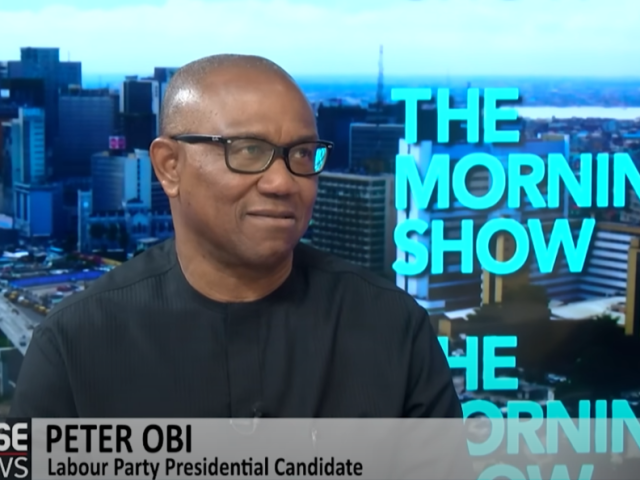IN SHORT: There is no evidence that Ifeanyi Okowa called Obidients, supporters of Nigeria’s Labour Party presidential candidate Peter Obi, “a bunch of jobless hungry souls”. The viral quote is just more disinformation in the run-up to the country’s 2023 elections.
“Obidients are a bunch of jobless hungry souls,” reads a quote attributed to Nigerian politician Ifeanyi Okowa. It’s been circulating on Facebook since 11 October 2022.
Obidients are supporters of Labour Party presidential candidate Peter Obi. Nigerian voters will choose a new president on 25 February 2023.
Okowa is the governor of Delta state in southern Nigeria. He’s also the running mate of Atiku Abubakar, the Peoples Democratic Party presidential candidate and Obi’s rival.
The quote can also be seen on Facebook here, here and here.
But did Okowa really say it? We checked.

Disinformation harms voters’ choices
None of the Facebook posts provide details on where or when Okawa made the statement. This lack of detail is a common red flag to false information.
And the quote couldn’t be found anywhere on Okowa’s verified Twitter account. It also hasn’t been reported by any credible news outlet.
Campaigning for the 2023 elections officially kicked off on 28 November.
Since then – and even before – there’s been an increasing number of false claims about candidates and parties. These may distort political debate, and so reduce voters’ ability to make informed choices
For more information, see our guide to Nigeria’s pivotal 2023 general elections.
Republish our content for free
For publishers: what to do if your post is rated false
A fact-checker has rated your Facebook or Instagram post as “false”, “altered”, “partly false” or “missing context”. This could have serious consequences. What do you do?
Click on our guide for the steps you should follow.
Publishers guideAfrica Check teams up with Facebook
Africa Check is a partner in Meta's third-party fact-checking programme to help stop the spread of false information on social media.
The content we rate as “false” will be downgraded on Facebook and Instagram. This means fewer people will see it.
You can also help identify false information on Facebook. This guide explains how.




Add new comment